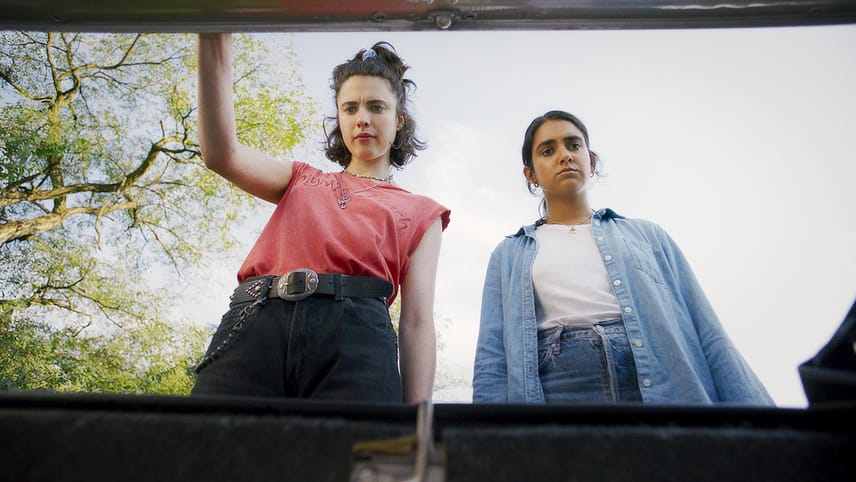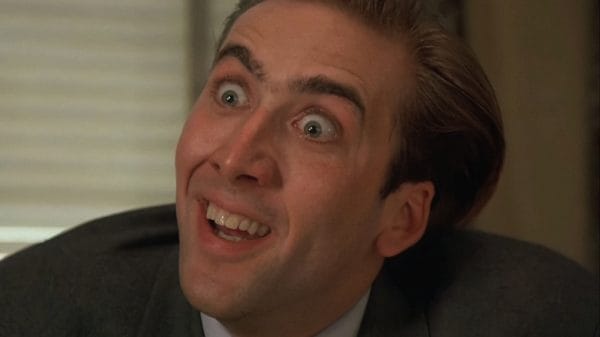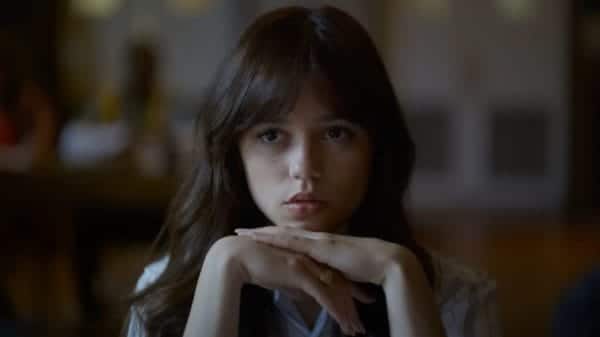Ethan Coen, one half of the dynamite directing duo known as the Coen Brothers, brings us his solo narrative directorial debut with Drive-Away Dolls. The film follows two lesbians who suddenly find themselves on a road trip to Tallahassee in a car with hidden secrets in the trunk, and a band of bumbling criminals hot on their trail. Can Ethan match the wit of his earlier films without the assistance of his brother Joel? Is this film a ride worth taking, or should you leave it in the dust? Let’s review Drive-Away Dolls!
What’s the story?
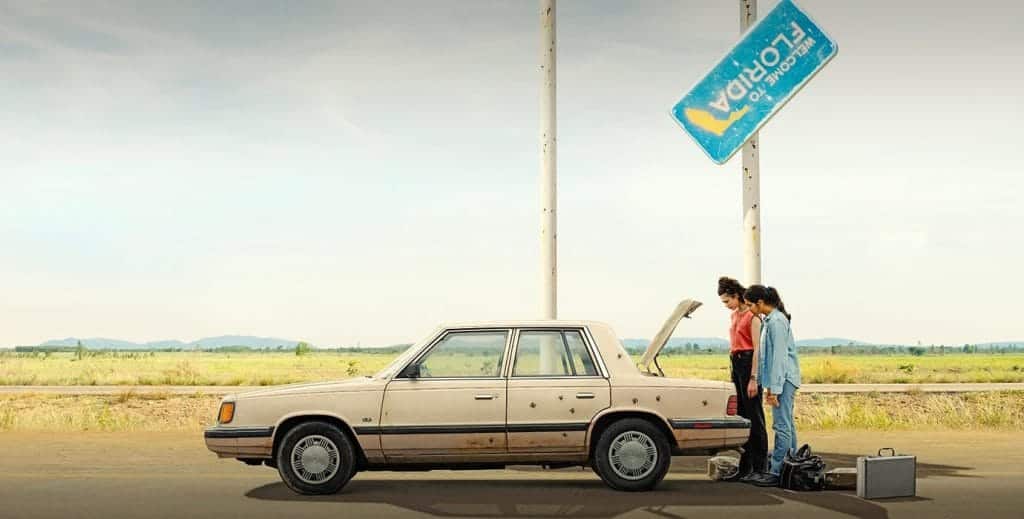
The story is set in Philadelphia in 1999. We begin with a brief prologue where we are introduced to Santos (Pedro Pascal). Guarding a suitcase and visibly paranoid, he soon meets an untimely demise by some mysterious goons. We then shift over to our leads. Following a recent breakup with her girlfriend Sukie (Beanie Feldstein), Jamie (Margaret Qualley) wants to get away and hit the road. Lucky for her, her friend Marian (Geraldine Viswanathan) is already planning on heading to Tallahassee, Florida. Jamie quickly decides to tag along on.
In need of a ride, the two decide to use a drive-away car, a service where someone is hired to transport a car from one destination to another. Through a mix-up by the straight-faced owner of the service, Curlie (Bill Camp), Jamie and Marian accidentally end up taking off in a car that has already been booked by some nefarious fellows. The fellows in question are Arliss (Joey Slotnick), Flint (C.J. Wilson), and the head crony, simply named Chief (Colman Domingo). They want the goods stowed in the trunk of the car. Upon learning of the mix-up and after roughing up Curlie for his blunder, Arliss and Flint set off in pursuit of Jamie and Marian.
After a series of frisky escapades at various lesbian bars and nightclubs in an attempt to get Marian to loosen up, Jamie and Marian end up with a flat tire. Looking for a spare, they discover the contents within the trunk. The same suitcase we saw Santos clutching so tightly in the intro has now found its way into the hands of our protagonists. The contents leave them speechless, and they realize just how in over their heads they are.
Is it any good?
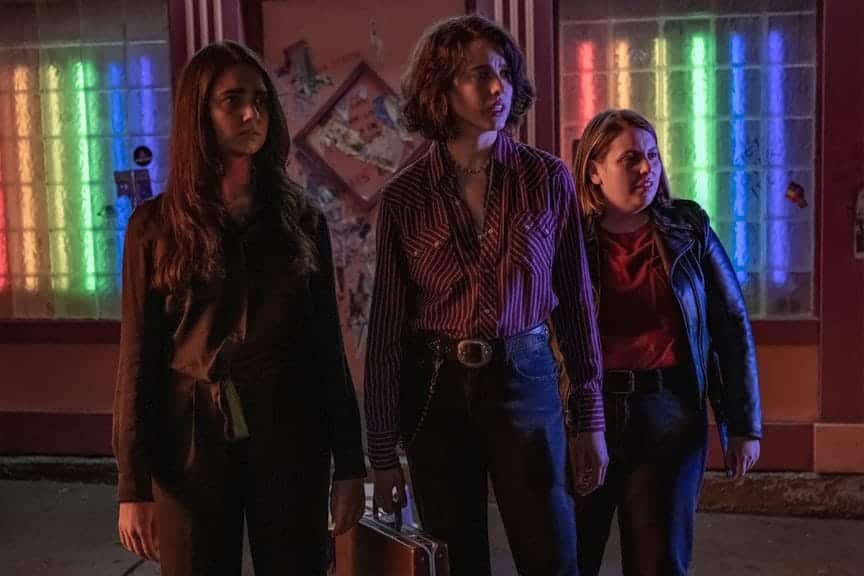
As a fellow Minnesota native and a lover of absurd comedies, the Coen Brothers rank high among my favorite filmmakers in existence. Unfortunately, Drive-Away Dolls is a mere imitation of their past glories. It is abundantly clear why the brothers have operated as a single unit for so long: they need each other to rein the other in. Without the other’s input, they let style overtake substance. Drive-Away Dolls is the most damning of evidence to illustrate this.
The film is far more concerned with being crude, lewd, provocative, and any other related synonym you can think of than it is with telling a compelling caper. Overstuffed with crass sex humor and raunchy dialogue, the film goes as far as to make… um… an instrument of pleasure… an item of major importance. Not only is it crucial to the plot, but it is strangely featured in the film’s chief emotional scene as well. Now I’m no prude. Poor Things was among my favorite films of 2023 and is far more sexually explicit. The difference is that Poor Things uses sexuality for a narrative purpose. Here, it is simply used as gags that don’t land or for mere shock value.
What went wrong?
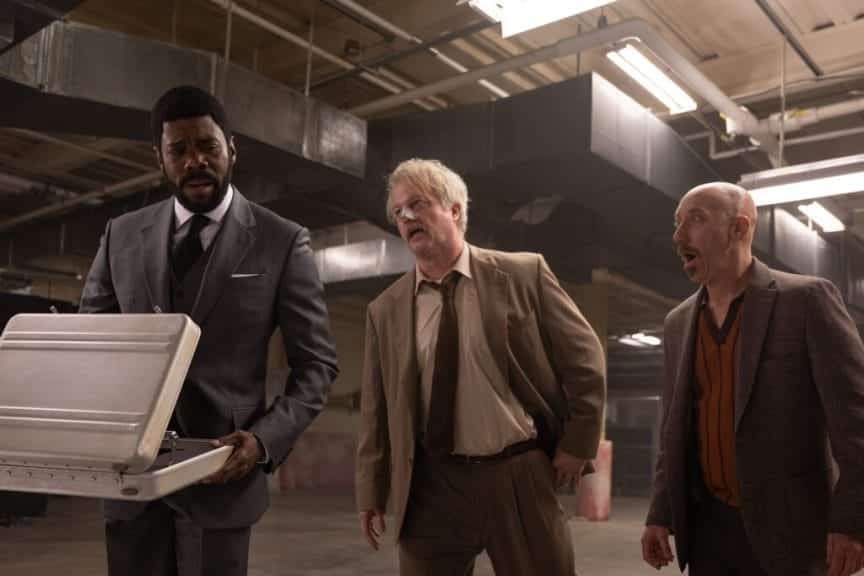
The screenplay was penned by Ethan Coen himself and his wife, Tricia Cooke. I can’t imagine it was a very dense stack of papers. The film is a meager 84 minutes in length and still feels like it wastes a lot of time aimlessly wandering around. We bounce back and forth between two plot lines that feel equally aimless. Jamie and Marian are given very little to do until they are needed for the plot. The inept criminals are entertaining, but their scenes are repetitive and the characters themselves are underdeveloped. There’s just simply not enough urgency to the script. Even worse, there’s not enough plot to justify its already incredibly quaint runtime.
As mentioned, the style is more prevalent than the substance. Through the use of flashy editing and strange psychedelic transition sequences, the film tries its hand at having a colorful personality. But it’s all icing and little cake. The emotional core of the story falls flat, the comedy seldom hits, the climax feels rushed and unsatisfying, and the overall experience feels more like a parody of a Coen Brothers’ film than actual output by one of them. The script tries to channel the zaniness of Raising Arizona or The Big Lebowski, but is not nearly on the level of comedic wit as either of those films.
At least the performances are solid, namely Margaret Qualley and Bill Camp in a brief, yet scene-stealing role. But good performances can only take you so far, and even the committed actors just can’t make this story work.
What are audiences saying?
Unsurprisingly, reviews for Drive-Away Dolls have been critical. Many viewers were expecting more, especially considering the amount of talent behind and in front of the camera.
That said, there have been some who found the film charming.
What’s next?
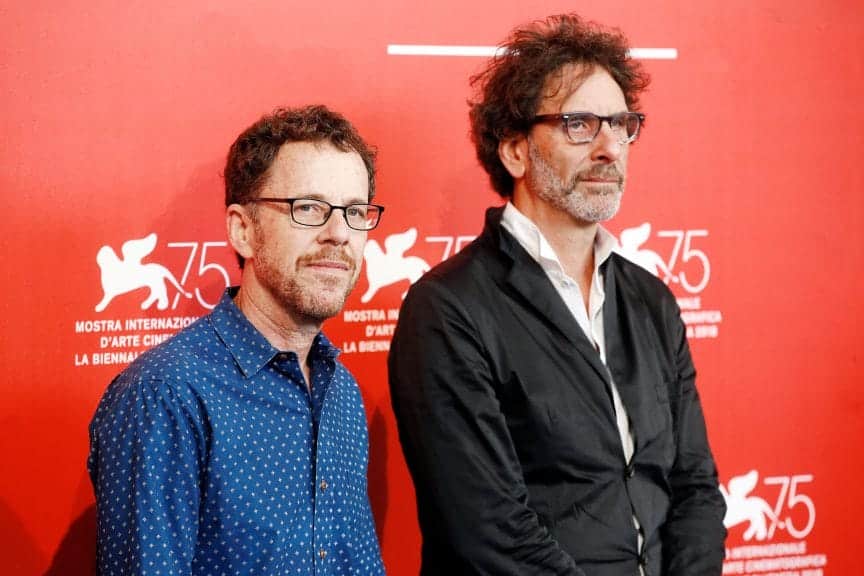
The creative parting of the Coen Brothers left many film fans saddened a few years ago. Their last film together was 2018’s The Ballad of Buster Scruggs. Since their decision to pursue independent filmmaking ventures, they have each directed a single narrative feature. Joel Coen made The Tragedy of Macbeth, starring Denzel Washington and Frances McDormand in 2021, and Ethan is now bringing us this as his first solo project.
While The Tragedy of Macbeth was generally well received, many have clamored for a reunion between the brothers. So far, their creative outputs separately have fallen short of their collaborative films. Thankfully, it has been reported that their next project will be a joint effort once again, putting many fan’s minds at ease.
Whether this solo chapter of their careers will continue after their next film, or it stands alone in time as a strange anomaly, it gives us a fascinating insight into how Joel and Ethan each operate without the assistance of the other. That said, I think I speak for many when I say that I hope they are back together for good. Regardless of what you think of them as solo filmmakers, I think we can all agree that when working as a pair, they are unstoppable.


